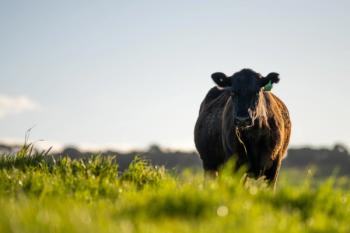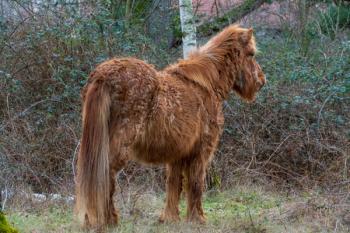
North Carolina confirms first-ever case of EHV-1
Raleigh, N.C. -- North Carolina confirmed the state?s first-ever case of the neurologic form of equine herpesvirus (EHV-1) Jan. 5.
Raleigh, N.C.
— North Carolina confirmed the state’s first-ever case of the neurologic form of equine herpesvirus (EHV-1) Jan. 5.
“We have been fortunate that we’ve not seen this particular form of this common virus in North Carolina to date, even though it has been increasing in frequency throughout the country for almost a decade now,” says State Veterinarian David Marshall. “We are working with the (North Carolina State University) College of Veterinary Medicine and with the stable to implement biosecurity measures and minimize the risk of further spread.”
Dr. Tom Ray, director of Livestock Health Programs for the North Carolina Department of Agriculture and Consumer Services, says the horse, from a Rockingham County stable, was taken to the North Carolina State University (NCSU) College of Veterinary Medicine when it became ill.
Once at the veterinary college, NCSU officials say the horse was isolated and quarantined in a separate unit at the College of Veterinary Medicine’s Equine Farm Animal Veterinary Center. Tests at the college confirmed the tentative EHV-1 diagnosis made by a referring veterinarian.
NCSU says it is working with Marshall and the veterinary division in the North Carolina Department of Agriculture and Consumer Services on a collaborative response to the case. The groups are working together to determine whether other animals have been exposed to the virus.
“With the prior warning, we were able to take the horse directly from the farm into our separate isolation unit so no horses currently in our hospital were exposed,” says Dr. Sam Jones, professor of equine medicine at NCSU. “We consulted with the state veterinarian’s office as well as biosecurity experts at Colorado State University who had previous experience with the virus. We are following our formal procedures for dealing with a highly contagious infectious disease, and a team of CVM veterinarians and veterinary technicians has been assigned exclusively to this case to further ensure the health of our other equine patients.”
As an extra precaution while the infected mare remains quarantined in the isolation facility, NCSU says the North Carolina State Equine and Farm Animal Veterinary Center will carefully monitor existing equine patients in the hospital and will accept only emergency cases for the next seven days. CVM veterinarians are communicating directly with referring equine veterinarians, with the North Carolina Veterinary Medical Association, and with horse owners who are concerned about the virus.
EHV-1 is highly contagious among horses, but poses no threat to humans. It most often causes respiratory infections in young horses, but different strains can also pose neurologic problems, which the affected North Carolina horse exhibited.
Newsletter
From exam room tips to practice management insights, get trusted veterinary news delivered straight to your inbox—subscribe to dvm360.





